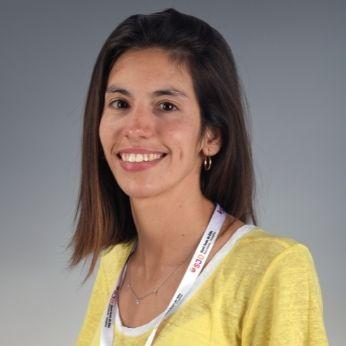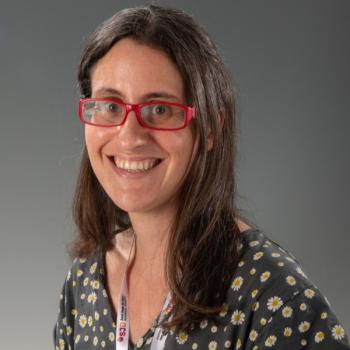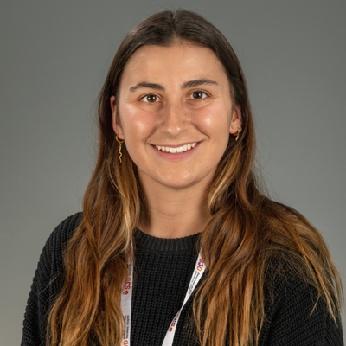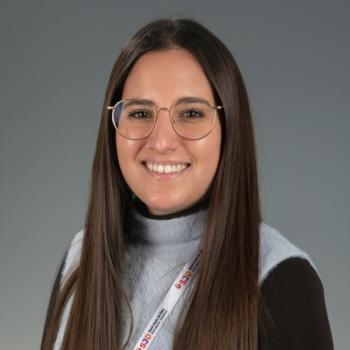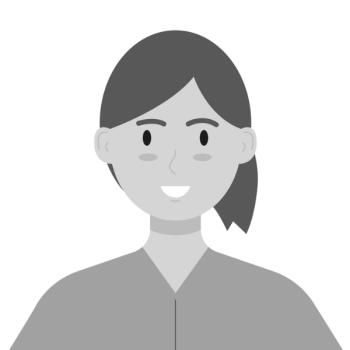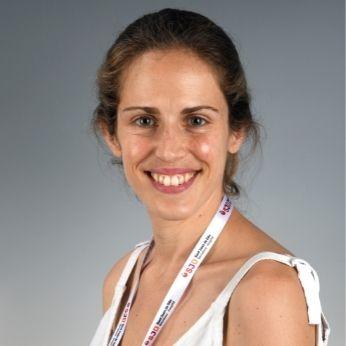
Meet the staff at Child life, who help children and their families adapt to the hospitalisation and disease process, and promote emotional wellbeing.
Hospitalisation and disease can involve a broad range of stressful and potentially traumatising events that affect the coping skills of those who experience them: children, young people and their families. At times, these circumstances generate confusion, anxiety, feelings of helplessness and isolation, as well as hindering childhood development, which, subsequently, can lead to negative repercussions on their emotional and physical wellbeing. These situations also present challenges for healthcare teams, who may have difficulties with various medical procedures due to the state of these patients.
To help patients, families and staff members in circumstances such as these, the SJD Barcelona Children's Hospital has been offering the Child Life service since 2004.
What is a Child Life specialist?
The team consists of pediatric healthcare professionals who, through the Child Life programme, work towards reducing the impact of hospitalisation on children and their families. The specialist team is made up of a nursing psychologist, two psychologists, two nurses and a teacher. All staff members have a Master’s in Emotional care as per the Child Life model, which was done through the SJD Campus Docent, in partnership with the University of Barcelona.
Child Life staff adjust their care to the age and needs of each child. To help patients and their families develop coping skills, there are therapeutic play areas and preparation spaces for the various hospital procedures that may need to be carried out. Child Life helps both the patient and their family properly adapt to the hospitalisation and disease process, and in turn, promotes their emotional wellbeing.
Their responsibilities and areas of expertise are:
- Providing care for families, children and adolescents
- Assessing the changing psychosocial needs of children, adolescents and their families.
- Forge and maintain meaningful, therapeutic relationships with babies, children, adolescents and families.
- Provide opportunities for play.
- Create a safe, therapeutic and curative environment.
- Provide support to help handle stressful situations.
- Carry out psychological preparation to help face potentially stressful events.
- Liaise and collaborate with other healthcare staff.
- Create areas of opportunity for growth, development, learning and control.
- Professional responsibility
- Ability to exercise knowledge and basic skills in professional and personal spheres.
- Ongoing participation in the Child Life programme in a self-reflective manner.
- Teamwork.
- Give a voice to the needs of children, adolescents and their families in the hospital environment and comply with the Charter of the Rights of Children in Hospital, passed by the EU Parliament in 1970.
- Education and supervision
- Represent and help to spread Child Life practices, as well as detect psychosocial aspects that go hand in hand with disease and hospitalisation of children, adolescents and their families.
- Supervise Child Life students.
- Research Fundamentals
- Integrate clinical evidence and fundamental knowledge of childhood into professional decision making.
- Administration
- Develop and evaluate departments and procedures as per the Child Life model.
- Implement the Child Life mission into the work environment and structure.
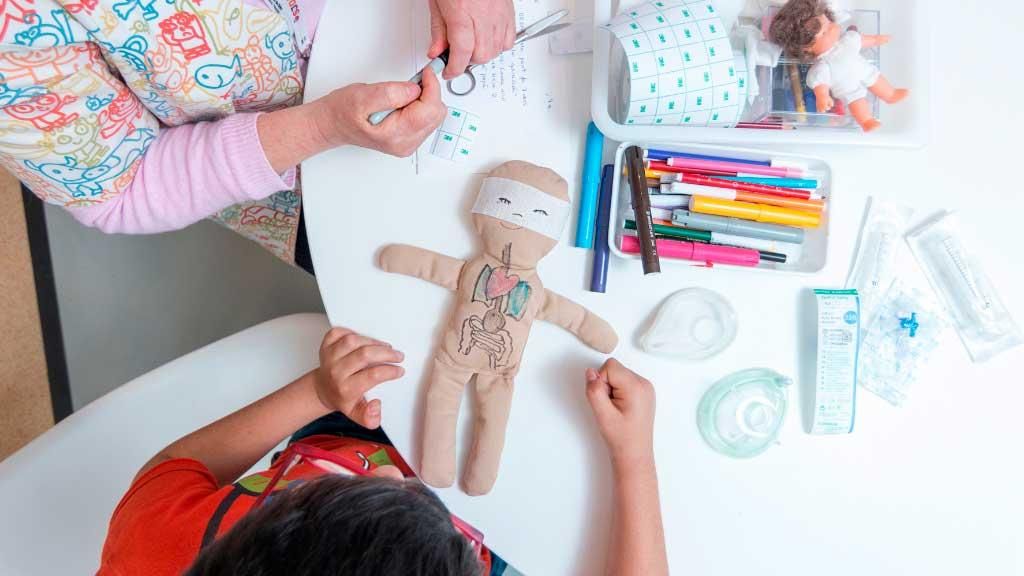
How do Child Life specialists help children and their families?
The Child Life team helps families and children from first diagnosis, throughout their treatment and into the end stage of their recovery, whether in hospital or at follow-up outpatient appointments.
They provide psychological preparation at each stage of treatment. This could be during admission to hospital, prior to a surgical operation or during follow-up medical visits. There may also be close coordination with the Hospital Amic programme, with activities to help overcome anxiety that children and adolescents may feel throughout their journey.
Patient profile
Child Life wants to help all young people in the family unit. Patients can benefit from the Child Life programme if they:
- Are under 18 years old.
- Are admitted to the SJD Barcelona Children's Hospital, the Pediatric Cancer Center Barcelona, La Casa de Sofia or the PICU.
- Are hospitalised for four or more days, with continued admission expected.
- Experience difficulties coping with medical procedures or appointments.
- Require complex surgery.
- Must undergo a medical procedure or appointment and present difficulties handling or coping with the situation.
- Show clear emotional distress (anxiety, fear, sadness, annoyance).
- Have presented with a chronic illness.
- Patients and families from the Day Hospital with difficulties understanding their disease who have a lack of distraction resources and/or difficulties coping with medical procedures.
- Patients and families from the Outpatient Department when they are referred by SJD staff.
Siblings of patients can also join the Child Life programme if they are having feelings of anxiety, fear or any other issues due to their relative’s condition.
Goals
With the situations that many patients face, the goals of Child Life are:
- To provide emotional support for children and families whenever they need it during their hospital stay.
- To foresee and reduce the negative emotional impact that patients and their families may experience when they come to SJD.
- To help patients adapt to their disease, using play as the main tool and adjusting it to each patient.
- To ensure that each patient's hospital stay is as comfortable as possible for them and their family, and that the child understands what is happening by using language that is appropriate for their age, development and needs.
- To make being a patient at SJD a positive growing experience.
- To carry out cross-disciplinary work with medical and psychosocial teams.
- To consider the child's perspective in patient experience improvement processes.
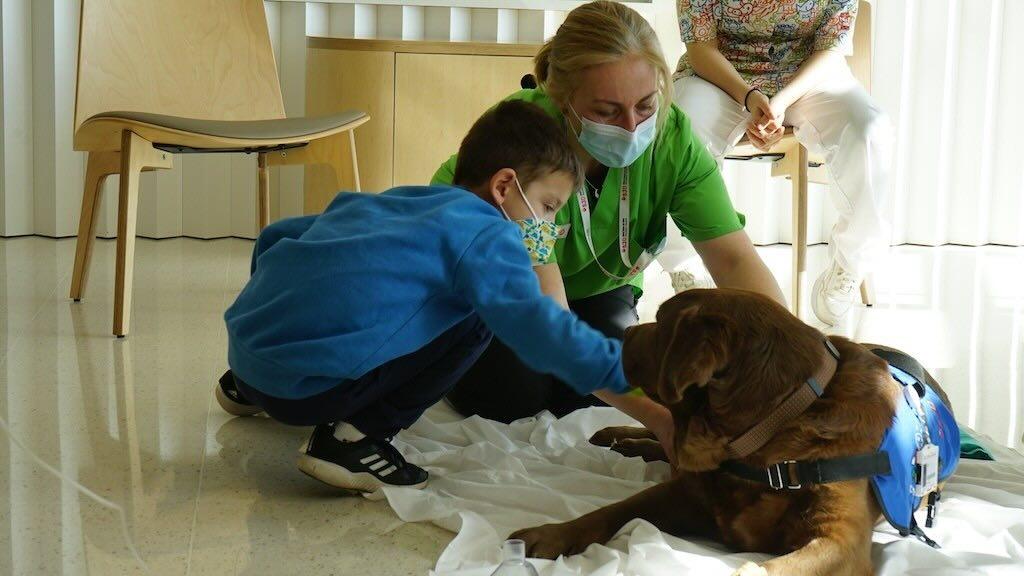
What is psychological preparation?
When it is decided that a child needs help from Child Life, staff will start implementing a psychological preparation session for the child before any medical or surgical procedures. The session is characterised by:
- Being completely personalised to the patient's needs.
- Making use of symbolic play, medical play and strategies that can be useful for each individual case, be they verbal, visual, or by physically visiting the place where the treatment or operation will take place.
This preparation process also involves providing families with materials and resources to use at home, such as using real medical equipment to get the child accustomed to it beforehand. Child Life staff are there to answer questions whenever they come up, providing strategies to help the child or adolescent face the medical or surgical procedure they have scheduled.
Throughout this process, the Child Life team works closely with clinical staff from each unit in which the patient is to be treated.
It goes without saying that the individual needs of patients with functional diversity, developmental disorders or other traits will be taken into account at every stage of the hospitalisation preparation process.
To ensure the proper implementation of all these procedures, whenever necessary, the Child Life team can coordinate their activity with that of Hospital Amic to help make admission to SJD as positive as it can be.
Hospitalisation follow-up
Once the child has been admitted to the SJD, the Pediatric Cancer Center Barcelona or La Casa de Sofia, the responsibilities of Child Life enter a new phase (although the core objective is still to help the patient adapt to the hospital environment). The patient is continually monitored as they move through each stage of their treatment to detect any emotional risk factors or other psychosocial needs as they arise. Hospital Amic is also closely involved during this monitoring period.
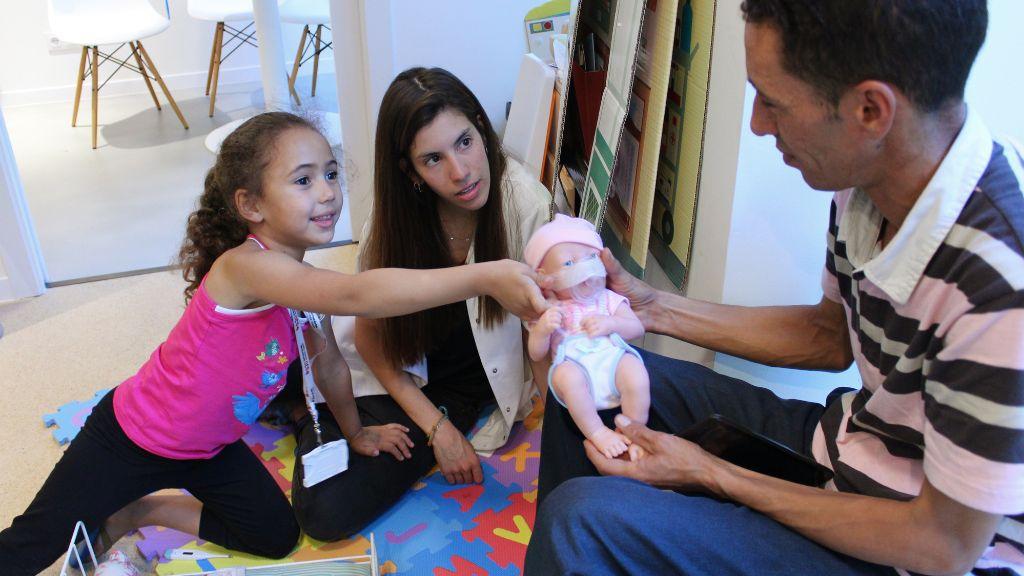
Follow-up at the Outpatient Department – Coordination with care teams
Child Life staff work hand in hand with each department and unit at the SJD Barcelona Children's Hospital. They take part in the meetings of several medical teams and boards to help promote comprehensive care and share the psychosocial and emotional needs of families during case assessments and intervention planning decisions.
Oftentimes, professionals detect spiritual and social needs that have to be referred to the corresponding department or service, as well as needs for specific psychological support.
They are part of the Oncology Psychosociospiritual Care Team (EAPSO), and get involved in meetings across various wards and hospital departments. They are also part of many other boards and committees—scoliosis, cochlear implants, HSCT, solid tumours and retinoblastomas, for example—and they take part in meetings held with Cardiovascular Surgery, Psychosocial care in the Heart Unit, Tumour boards, the Neonatal Psychosocial Care Team and Neurology.
Work with Hospital Amic
The Hospital Amic programme, launched in 2009, is a pioneering scheme in Spain that periodically runs various events and activities at the SJD. The team aims to reach therapeutic goals and help patients and families adapt to the hospital and their disease, as well as promote recovery and healthy development of children and adolescents.
Within Hospital Amic, there are various groups that attend to children referred from Child Life, depending on when they were admitted, as well as the needs and resources that the patient and their family have.
These groups include:
- Hospital clowns: activity with Pallapupas and the Fundació Theodora [Theodora Foundation].
- Music therapy: activity run by the Associació de musicoteràpia Ressò [Ressò Music Therapy Association].
- Expressive art: activity run by Artepaliativo.
- Dog-assisted interventions: activity run by CTAC.
- La Magnòlia hospital school.
- Social theatre.
- Magic: activity run by the Fundació Abracadabra [Abracadabra Foundation].
